 Murcia's peppers appear to be gaining an increasingly large market share when Almería's season comes to an end. This can be thanked to the filling of market gaps and the ever-higher quality supplied by the seed companies. Already 1,800 hectares of peppers are grown under glass in Murcia, and more than half of the production is traded in auctions, which set the selling price.
Murcia's peppers appear to be gaining an increasingly large market share when Almería's season comes to an end. This can be thanked to the filling of market gaps and the ever-higher quality supplied by the seed companies. Already 1,800 hectares of peppers are grown under glass in Murcia, and more than half of the production is traded in auctions, which set the selling price.
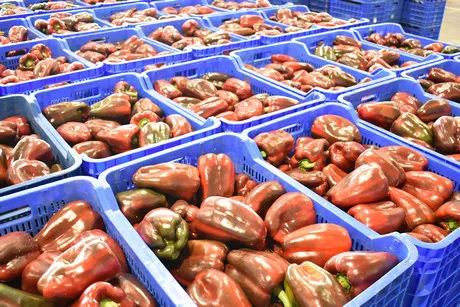
"The current pepper campaign has so far been really good for the auctions; the market is stable and a kilo of peppers generates an average of 1.50 Euro per kilo. There is less competition from other countries such as the Netherlands than in previous years. Dutch growers are more focused on tomato cultivation. Normally, prices fall in June when there is more supply on the market, but prices remain stable this year," said Angel García Izquierdo and Pedro Fernández, director and chairman of the Soltir auction.
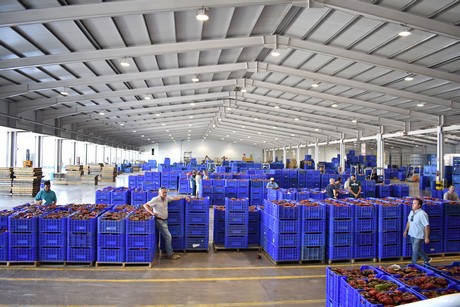
However, they warn against too much optimism. "Even though it is true that the situation of Murcia's peppers will continue to improve, this is an exceptional year in which all kinds of factors have coincided, pushing prices up. It could give rise to false expectations among growers for the coming year."
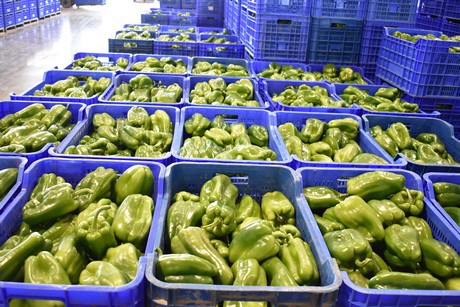
Soltir is one of the most important pepper auctions in Murcia, with around 420 hectares and a production of 42 million kilos by 220 affiliated growers. In total it has 2,660 hectares of agricultural land, not only for the production of peppers, but also for artichoke, pumpkin, broccoli, Cantaloupe melon and citrus fruits.
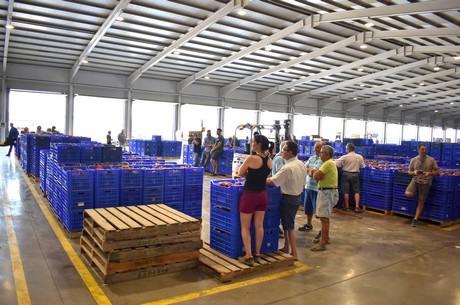
"Unlike other auctions, we only auction the products from our growers; that way, we are able to monitor the entire production process, from seed to harvest and sales, carried out by a team of 5 technicians from the agricultural sector," says Angel García Izquierdo.
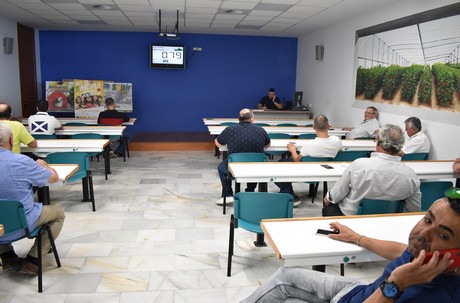
50% of Soltir's peppers are short, bell peppers, while the other half are Clovi or Lamuyo. They are all grown in the colors red, green and yellow. However, it has already been announced that an orange version of the bell peppers will also be available on the market next year.
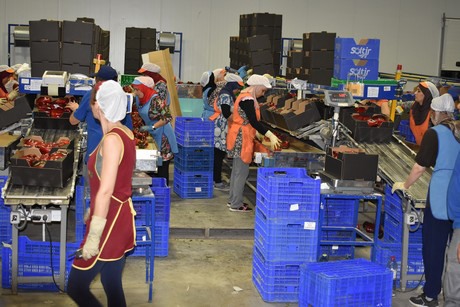
According to Ángel García, Murcia's pepper production is undergoing important changes. "Quality is constantly improving due to the efforts of seed companies and the implementation of better cultivation techniques. A few years ago, when Almeria's campaign came to a close, the markets switched immediately to companies from other countries, such as the Netherlands, since the bell peppers from Murcia were not attractive because of their color, size and short shelf life. Now we can say that we sell varieties that are superior to Dutch peppers in terms of taste and appearance. Also, half of our buyers come to the auction from Almería, where they are increasingly lengthening their programs."
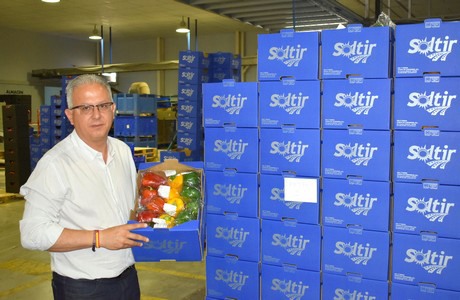
80% of the pepper production is sold through the auction, which has 12,000 square meters and a distribution center. The remaining 20% is sold directly to supermarket chains, as they have a distribution and packing center at the auction site.
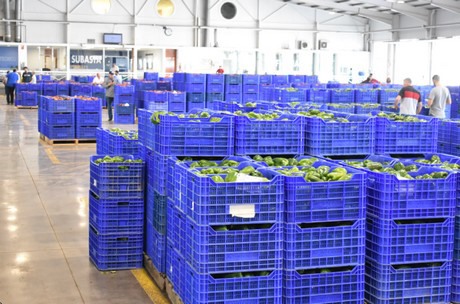
'We are looking for different markets so that both sales models can co-exist within our company. We think that, in Murcia, the auction model is still suitable for the sale of peppers and artichokes. Broccoli, however, is a product that is increasingly less present at the auction. Last year, only 10% of Murcia's broccoli production was auctioned," says Pedro Fernández.
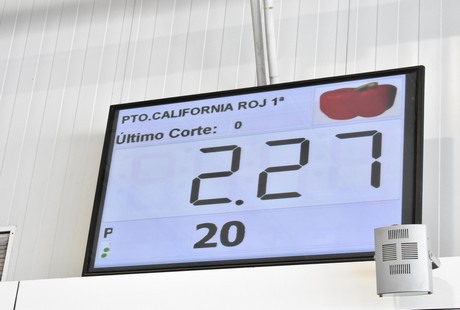
70% of the peppers sold at the auction are intended for Spain, and the rest is exported to countries such as Portugal, Italy and France. "This year, we sold 30% more in Portugal, where Dutch peppers have lost ground," says Ángel García.
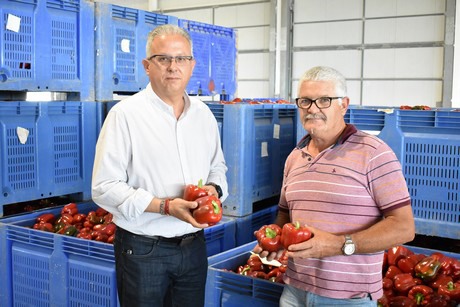
Next year, Soltir will be launching organic peppers for the first time. "Our customers want organic peppers and we want to meet this demand. Nevertheless, I believe that the demand for conventional peppers will remain the most important, since this crop is also grown in an increasingly sustainable and environmentally-friendly way and the only difference will soon be in the certification. Even though organic cultivation receives a lot of media attention, only 7% of the crops in Murcia are organic. I think we should concentrate our efforts on boosting conventional cultivation, since sustainability and food safety are already sufficiently guaranteed in this way," says Pedro Fernández.
For more information:
Ángel García Izquierdo
Soltir
T: +34 968 334 800
Autovía San Javier-Murcia, Km22.
30592 San Cayetano. Murcia. Spain
[email protected]
www.soltir.com
